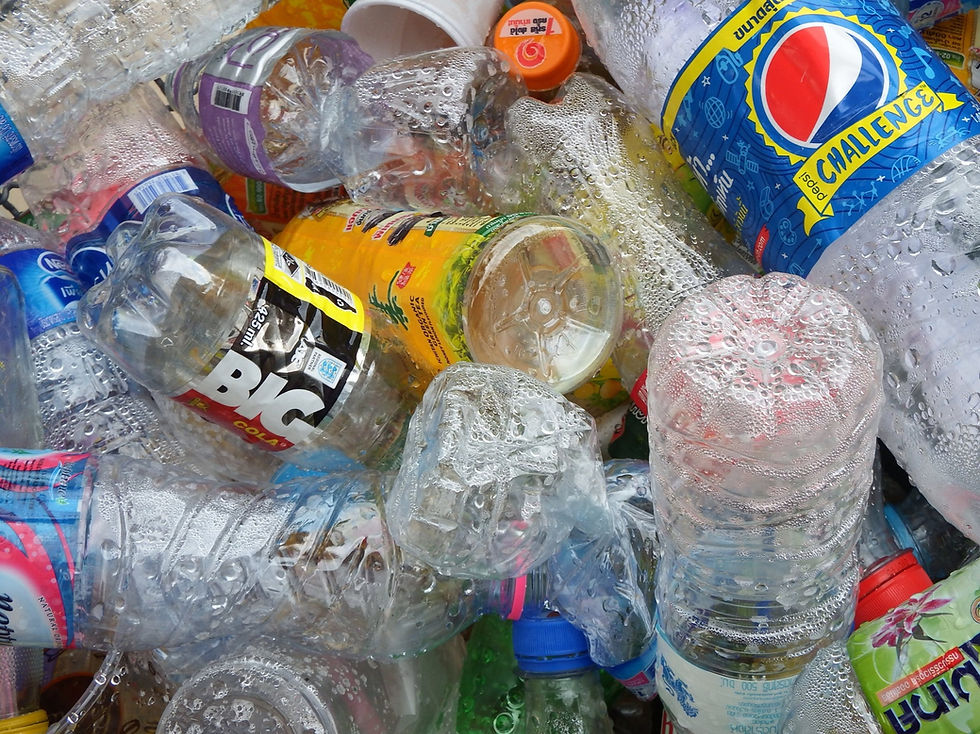Plastics
- Jack Dodson

- Oct 3, 2020
- 3 min read
This is the sequel to the blog I wrote last week, which was about the history of plastic. If you haven’t read that yet please go do that. In today’s blog, I will be answering 5 basic questions about plastic: What are plastics made of? Who makes them? How are they made? Why don’t they decompose? And what are some great alternatives?
What are plastics made of?
Plastics are made of fossil fuels such as cellulose, coal, natural gas, and crude oil. These fossil fuels are formed over millions of years, as the fossils of plants and animals slowly turn into energy-dense substances like oil and coal. These fossil fuels are also used for many other things in our lives. They are horrible for the environment and we need to move away from using them.
Who makes plastics?
The ten largest plastic producing companies are Dow Chemical, Hanwool Corporation, Lyondellbasell, Ihne & Tesch GmbH, ExxonMobil, Matsui Technologies India Ltd, SABIC, Acros Pvt. Ltd, BASF, and Ser Rezistans A.s. These are all giant corporations that wield massive amounts of power, which is why it is so hard to take down the plastic business and make sustainable practices necessary for these companies. If we look at this by countries instead of corporations, the countries that produce the most plastic are China, the US, Germany, Brazil, and Japan.
How are plastics made?
There are many different types of plastics, and they are all made in different ways, but they start with the same process. The production of plastics begins with the distillation of crude oil in an oil refinery. This separates the heavy crude oil into groups of lighter components called fractions. Each fraction is a mixture of chains of hydrocarbons (chemical compounds made up of carbon and hydrogen), which differ in the size and structure of their molecules. These fractions form the long polymer chains that are the plastics. The many different varieties of plastics can be grouped into two main polymer families: Thermoplastics, which soften on heating and then harden again on cooling, and Thermosets which never soften once they have been molded. Basically, the polymers are heated up until they are a liquid, and then put in a mold while they cool and harden. Then the mold is taken off and the plastics hold their shape. Some examples of Thermoplastics are Polycarbonate (PC), Polyethylene (PE), and Polyvinyl chloride (PVC). Some examples of Thermosets are, Epoxide (EP), Phenol-formaldehyde (PF), and Polyurethane (PUR).
Why don’t plastics decompose quickly?
Plastics are used so much today because they are cheap and easy to produce, they can form almost any shape, and they are really strong and don’t break down easily. Polyethylene terephthalate (PET), which is what most plastics are made of, is not organic or natural and therefore does not break down. Because of this, plastics never really decompose, they just break into smaller and smaller pieces. After hundreds of years, these pieces get so small that they are basically gone. This is when we say they are decomposed, even though they are still there.
What are some great alternatives?
There are a lot of alternatives to plastic and single-use items. Metal can be great for multi-use alternatives like bottles because it is stronger and can function longer. Paper is great for single-use replacements like straws and cups, but you have to be careful with what you buy because they can have a plastic lining. Bamboo is extremely sustainable and can be used in many different ways, from fabrics to bowls. Cloth can be a great alternative for things like plastic bags. Everything has its downside, so do your research, but definitely stay away from plastic. The best thing you can do is to limit what you buy and make sure everything you get is necessary. Even though the massive corporations contribute the most to climate change and are the most wasteful, we must also change our actions on an individual level because it is very easy and still helps a lot.

Photo Credit: Wix
Read more:





Comments